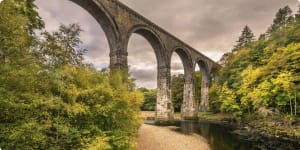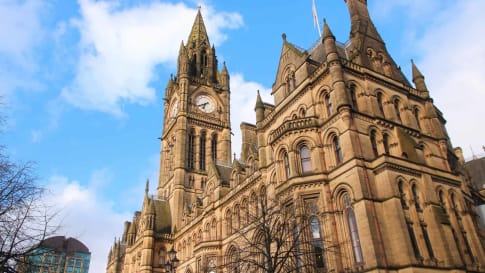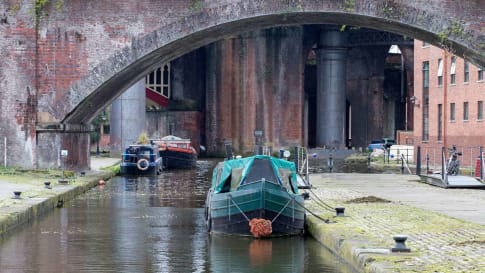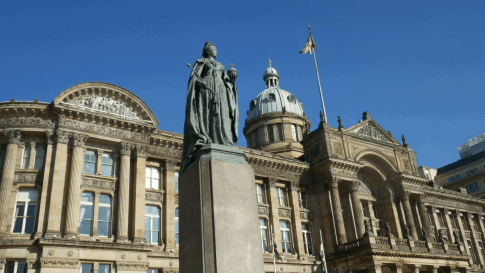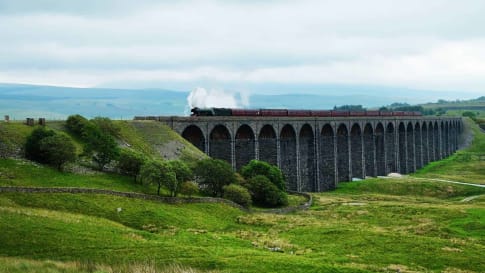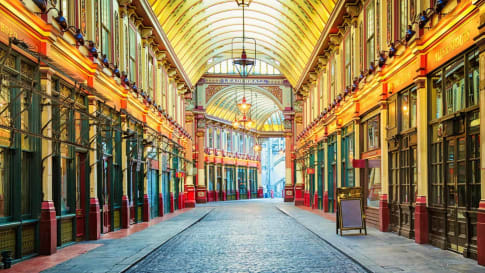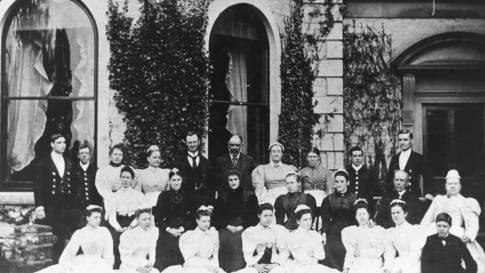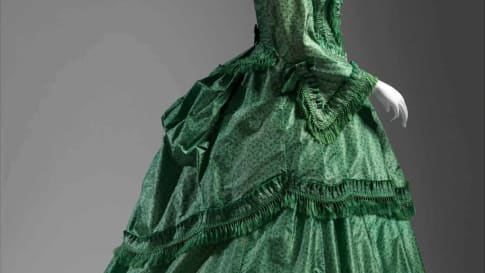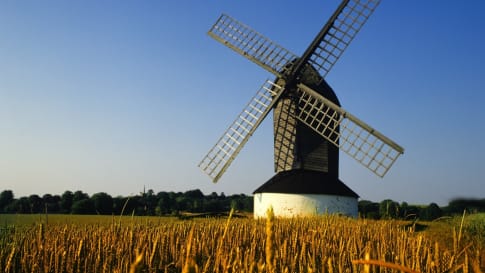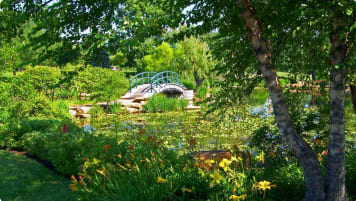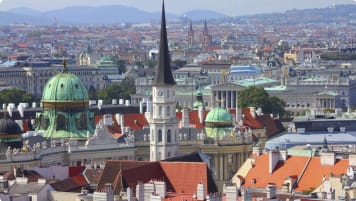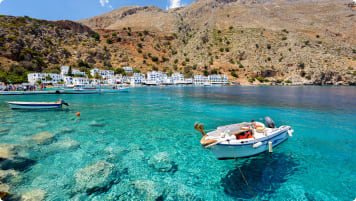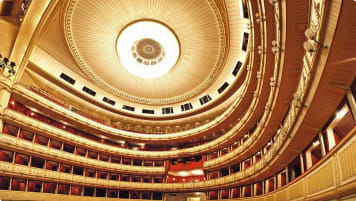Canals and Railways in the Industrial Revolution Tour | Tours for Seniors in Britain
A small group tour of Wales, Scotland & England that traces the history of the journey that is the Industrial revolution. Knowledgeable local guides and your tour leader share their history with you on this escorted tour including Glasgow, London, New Lanark & Manchester, Liverpool and the Lake district.
From $20,302NZD
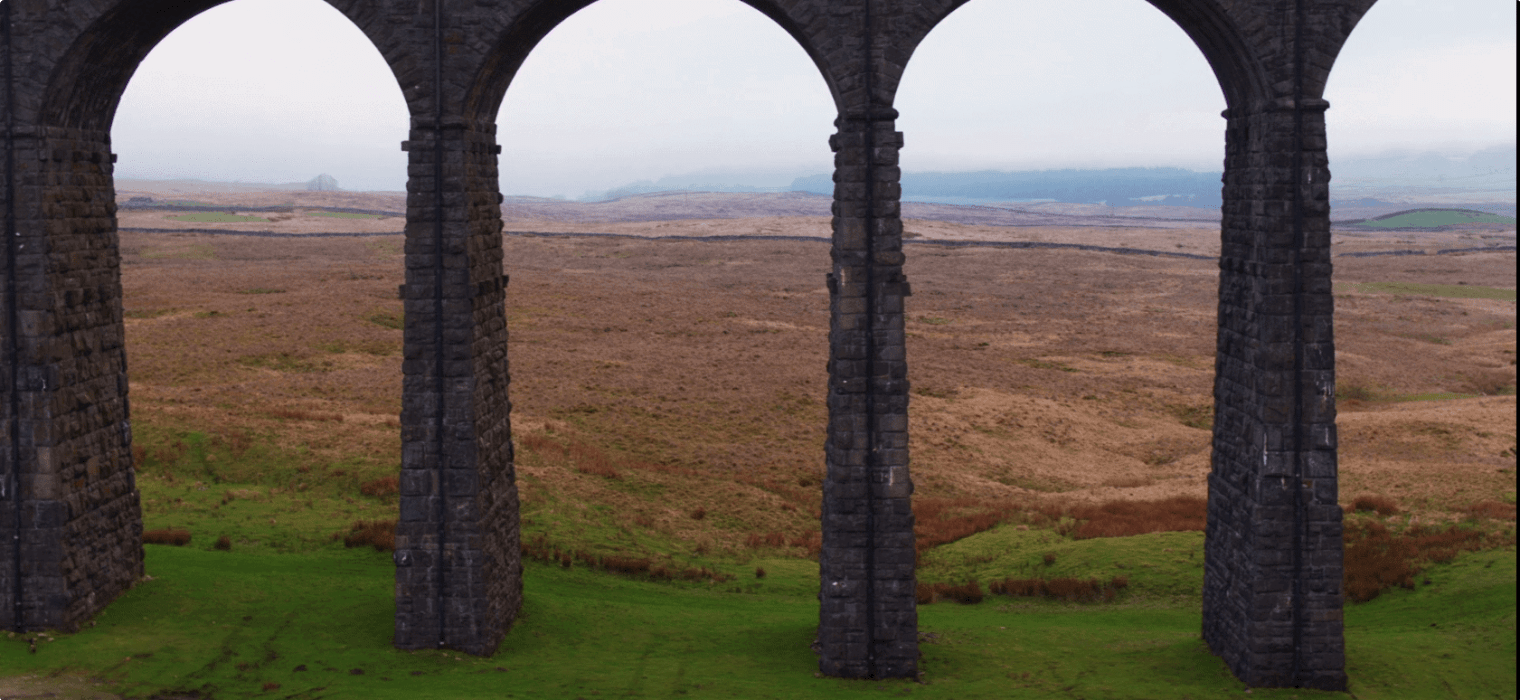
Highlights
- 1. Visit Shrewsbury, Chester, Durham, the Lake District, and London.
- 2. See the architectural wonders of 18th and 19th century bridges, viaducts, and aqueducts.
- 3. Enjoy several short scenic rail journeys in Wales, England, and Scotland.
- 4. Enjoy scenic canal cruises in the Llangollen Canal in Wales, the Lancaster Canal
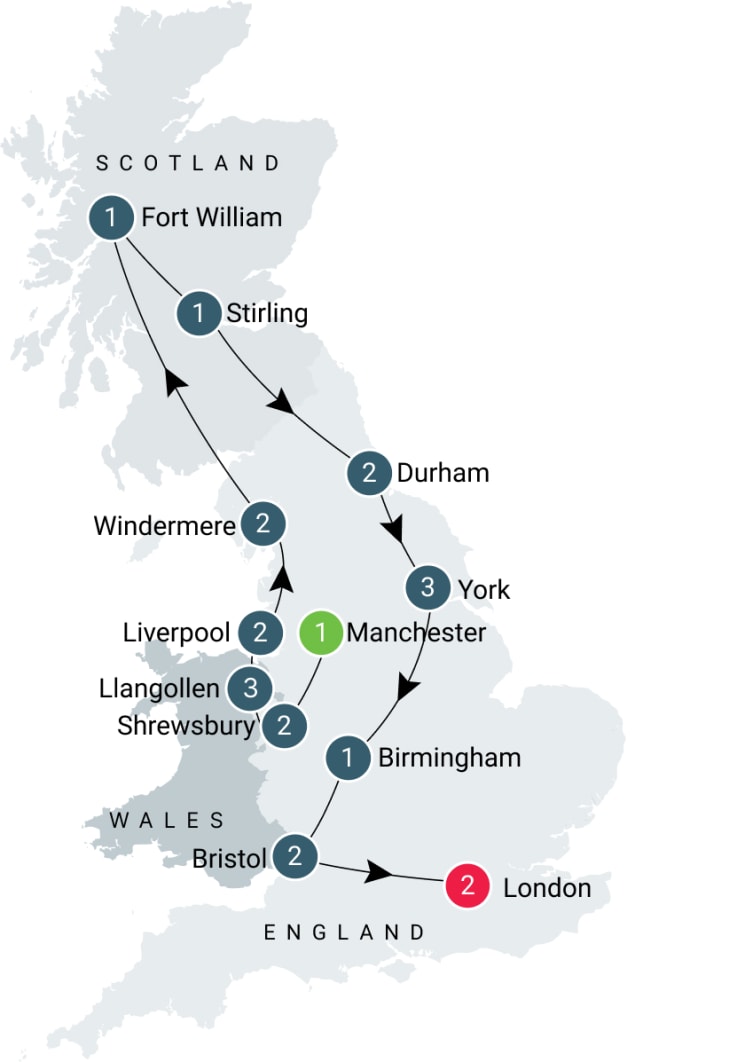
Departure Dates
| Departure Date | Price |
|---|---|
| 29 September 2025 Ends 21 October 2025 • 23 days $20,302 Twin $22,565 Single Pre-guaranteed | Selected |
| 06 April 2026 Ends 28 April 2026 • 23 days $20,302 Twin $22,565 Single Available | |
| 28 September 2026 Ends 20 October 2026 • 23 days $20,302 Twin $22,565 Single Available |
An Industrial Revolution Tour for Seniors | Exploring Britain's history through its canals and railways
This small group tour uncovers British history through the canals and railways of the Industrial Revolution. Learn how the Industrial Revolution after the Industrious revolution brought significant and lasting change to Britain. Discover how engineers overcame geographical obstacles using viaducts, bridges, aqueducts, tunnels, and locks. Witness first hand the groundbreaking technology and the many impressive structures that transformed Britain's economy, some now restored for recreational purposes. However, our tour program is not only a study of the physical impact such a fundamental change made to world history. Led by local guides selected for their expertise, we also provide the opportunity to examine and discuss the resulting social upheaval.
Packed to the brim with history, culture, and striking scenery, Great Britain and Ireland have a lot to offer the traveller. Our small group tour of the British isles are perfect for the mature or senior traveller who wants to explore the history of Britain and Ireland as part of an intimate guided tour with an expert local guide. The Industrial revolution tour, you can explore the must-see sights, while nonetheless offering experiences that venture off the beaten path on Odyssey Travellers collection of small group British tours.
The Industrial Revolution in Britain
The Industrial Revolution was the result of a number of developments that laid the foundation for economies of scale in manufacturing by lowering unit cost and maximising labour. In the late eighteenth and early nineteenth century, British manufacturers developed a number of new technologies, including the ‘spinning jenny’ and the power loom, which permitted increased production with a smaller amount of labour. From modest beginnings in the textile factory, these innovations would transform British industry, and eventually, the world.
Vital to this process was an improvement in communications. Canals linked major river to major river, while new technologies – the introduction of rolling mills and the high pressure steam engine – allowed for the creation of railway networks across the country.
The Industrial Revolution also transformed British society. Urbanisation was rapid, as millions left the country for new employment in the city. While some became wealthy out of all this innovation, for many it meant grim employment in atrocious working conditions.
While today's post-industrial economy seems like a far distant memory from the workshops and factories of 18th century England, the spirit of innovation established during the Industrial Revolution still shapes the way we think about our world. Today, information technology is called the 'fourth industrial revolution', while business students continue to learn economic principles established by observers of the Industrial Revolution such as Adam Smith.
Industrial Revolution Tour Highlights & Itinerary
Britain's industrial history is tangible today in its built heritage. Our tour focuses on one aspect of this heritage: railways and canals. To trace these, we travel by road from England's midlands through to Wales, followed by the west coast to Scotland, and then return down the east coast to London.
Beyond canals and railways, we also take the time to visit other fascinating historic sites. These additional locations include the Menai Suspension Bridge, a walking tour of York, and the National Waterways Museum, where visitors enjoy hands-on activities to learn about the operation of canals. Other activities include field trips to Shrewsbury, Chester, the beautiful Lake District, and London itself.
Our tour takes in several UNESCO world heritage and national historic sites, including a factory tour of the Derwent Valley Mills, Pontcysyllte Aqueduct and Canal in Wales, and the Ironbridge Gorge bridge in Shropshire, with the nearby Jackfield Tile Museum and Blists Hill historic site.
For those interested in gaining a better understanding of how the Industrial Revolution transformed Britain, and continues to shape the country today, this is a travel experience like no other. Be prepared for a dazzling, memorable trip as you take in the quaint villages and diverse scenery that Britain has to offer. To send you best prepared, we have a recommended reading list about the Industrial Revolution.
You can learn more about Britain, England, Scotland and Wales with our profiles where all other tour departures are listed as well.
For further details about this tour, click the ‘Top 5’ or ‘Itinerary’ buttons above! If you’re keen to experience this tour, please call or send an email. Or, to book, simply fill in the form on the right hand side of this page.
Gallery
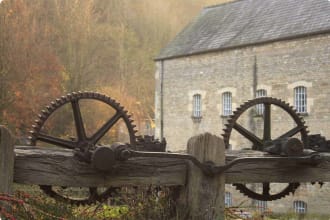
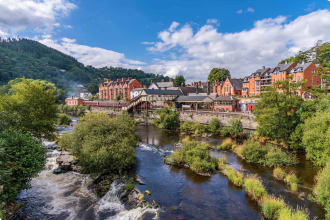
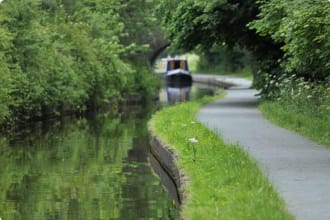
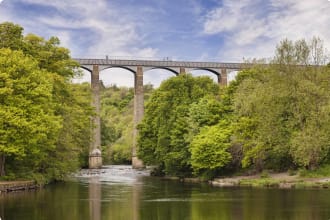
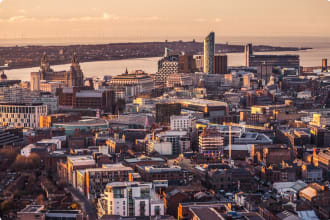
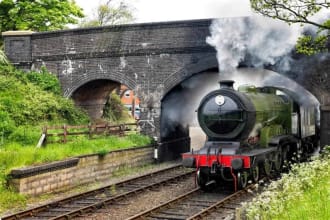
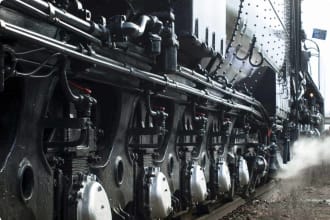
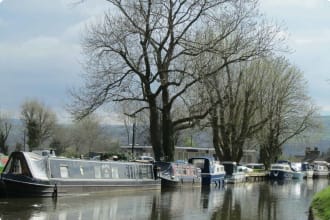
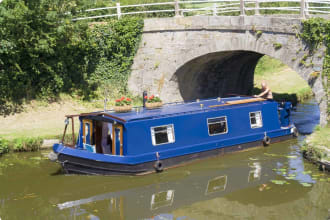
Itinerary
23 days
Day 1: Manchester
Accommodation: 1 night at Novotel Manchester or similar.
Upon arrival in Manchester, we will come to our hotel individually. Our tour will commence with a tour briefing and welcome dinner.
Day 2: Shrewsbury
Accommodation: 2 nights at Prince Rupert Hotel or similar
We start the day with a visit to Salford Quays, the major dock of the Manchester Ship Canal. The Manchester Ship Canal runs parallel to the Mersey River and made Manchester a most significant port, inland from seaside Liverpool. Salford was a major junction for canals, particularly those associated with cotton and silk spinning and weaving in local mills during the 18th and 19th centuries. We will also visit the Museum of Science and Industry.
We then make our way to Marples, which is a town on the edge of Greater Manchester. The Manchester region was the centre of great developments during the Industrial Revolution. The region was abundant in energy from coal for the spinning, weaving, and dying processes of the cotton fabric producing mills in the area. The expanding network of canals, and later railways, allowed for the movement of materials, products, and manpower to and from the factories. We will see the Grand Aqueduct, which carries the Peak Forest Canal over the River Goyt, and the impressive flight of 16 Marple Locks.
Later in the day we will visit Northwich as we cross the Cheshire Plains. Nearby at Winsfield, underground salt has been recovered since Roman times. An expansion of the industry in the mid 19th century relied on canal transport. To accommodate this, the recently restored Anderton Boat Lift was devised and built at Northwich in 1875, so enabling barges from the River Weaver Navigation to transfer their loads of salt to the Trent Mersey Canal. After visiting this boat lift, we will travel to Shrewsbury.
Dinner tonight will be at our hotel.
Day 3: Shrewsbury
Accommodation: Prince Rupert Hotel or similar.
The Shrewsbury region is located on a loop of the Severn River just a few kilometres from the Welsh border in Salop (Shropshire). It is a beautiful, historic market town with many black and white, half-timbered houses and is the birthplace of Charles Darwin. Just to the east of Shrewsbury is a new town, Telford, named after Thomas Telford (1757-1834), who took a leading role as an architect and engineer with the development of British canals and in the building of many significant roads and fine bridges throughout the country. We will see several of Telford’s engineering masterpieces during the tour.
We will see a number of structures associated with the Severn River, including a beautiful, graded, seven arch bridge at Atcham village just south of Shrewbury. This bridge, which spans the Severn River, was constructed circa 1770 by OJohn Gwynne. We will also see the first cast iron bridge, which was constructed at Iron Bridge township across a gorge of the River Severn. The bridge was planned by Robert Pritchard and opened in 1781. Such a project, made possible through the development of the blast furnace, was just the start of a plethora of constructions to take advantage of the new advances in iron foundry.
Day 4: Llangollen
Accommodation: 3 nights at Gales of Llangollen or similar
Today we will travel through Ellesmere, which is a pretty market town close to the Welsh border, adjacent to the Mere (one of several shallow lakes that formed in depressions after the last ice age) and on a spur of the Llagollen Canal. Telford lived here during the building of the Llangollen (Ellesmere) Canal between 1793 and 1805.
We will also explore Chirk Castle in the Wrexham District of North Wales. Built in 1295, Chirk Castle was built in 1295 as one of many similar structures along the Welsh Marches (Border) to defend England. The castle, which is now owned by the National Trust, features superb views to the east, an award winning garden with lots of topiary, and an interesting interior.
As we make our way to our hotel we’ll view the Chirk aqueduct. We arrive in time for dinner at the hotel.
Day 5: Llangollen
Accommodation: Gales of Llangollen or similar.
Our journey today will take us across Wales via Snowdonia onto the Island of Anglesey. This will allow us to see the Menai Bridge, which is another Telford construction, that enables crossing the Menai Straits between the mainland and Anglesey and makes travel to and from the Irish ferry at Holyhead possible. The monumental wrought iron and stone suspension bridge was an engineering triumph completed just before Telford’s 70th birthday.
We will ride on the railway from Blaenau Ffestiniog to Porthmadog. Blaenau Ffestiniog was the industrial centre for the largest slate mine in the world, boasting 80 kilometres of underground railway on 26 levels. The journey to Porthmadog is described by an avid British train-travel writer as “terrific” and “glorious.” Another writer describes it as “a spectacular railway with stunning views.” Before our return trip to Llangollen, we will stop to enjoy the view around Mount Snowdon (1,085 metres), the highest mountain in Wales.
Dinner tonight is at our accommodation.
Day 6: Llangollen
Accommodation: Gales of Llangollen or similar.
Today we will see the Llangollen Canal, which is another engineering feat of Telford’s, who worked with William Jessop to construct the canal. In 2009 an upper section of the Llangollen Canal was inscribed on the World Heritage list.
We will see Shropshire Union Canal Horseshoe Falls, which is a weir built in 1806 used to divert water from the upper reaches of the Dee River into the canal stream. This creates a flow in the canal and water is carried from here via Ellesmere to the canal terminus just north of Nantwich, where it joins the south-north Birmingham Liverpool Junction Canal.
We will see the impressive “canal in the air” at Pontcysyllte Aqueduct. Here Telford bridged the Dee valley with huge stone arches upon which he assembled an iron aqueduct trough and a towpath. We will travel along the canal in a longboat.
Day 7: Liverpool
Accommodation: 2 nights at Holiday Inn Centre or similar
During our travel north to Liverpool across the Cheshire Plains, we will stop at the ancient city of Chester, located on the north side of the River Dee and the Shropshire Union Canal. The city was once a major Roman Fort, and the amphitheatre and much of the city wall stem from this time. Chester’s galleried streets, the Rows, date from the Middle Ages and we will have some time to explore these.
We will spend much of the afternoon at the Ellesmere Port, which is located at the junction of the Shropshire Union Canal and the Manchester Ship Canal on the south bank of the Mersey River. We will also visit the National Waterways Museum. If available during our visit, we will take a short cruise on the Centaur on the Shropshire Union Canal. The Shropshire Union Canal was Telford’s last major work and ran from Wolverhampton (Birmingham) to Port Ellesmere, with many spur canals along its way, completing a major south-north link for the canal system.
Day 8: Liverpool
Accommodation: Holiday Inn Centre or similar.
In the morning we enjoy a panoramic tour of Liverpool and visit the main sights of the city and historic spots related to railways. We visit Liverpool Lime Street station and take a cruise on the Mersey River.
The afternoon and evening are free for you to enjoy the city at your own pace.
Day 9: Windermere
Accommodation: 2 nights at Merewood Country House hotel or similar
Today we will travel from Birkenhead to Windermere in the Lake District for a 2 night stop. We make a brief stop in Blackpool.
We enjoy a cruise on the Lancaster Canal across the Lune Aqueduct. Lancaster Canal was built along the contour, essentially eliminating the need for locks. The canal was engineered by John Rennie to carry coal, lime, slate and timber, and passengers between Kendall and Preston. A more recent spur canal, the Ribble Link, was constructed in 2002 near Preston connecting Lancaster Canal to the greater part of the canal system.
We will go inland to see the impressive 24 arched Ribblehead viaduct, which was built in the North Yorkshire Dales across the Ribble valley to carry the Settle to the Carlisle railway line. We will learn about its sad history as well as the story behind its threatened destruction and its rescue in 1960. The viaduct site in the Yorkshire Dales happens to be close to Askrigg, or “Darrowby” as it was portrayed in the television series “All Creatures Great and Small.” If time permits we may visit this small town.
We arrive late afternoon in Windermere and dinner this evening is at our hotel.
Day 10: Windermere
Accommodation: Merewood Country House hotel or similar.
Windermere became a holiday destination once the railway arrived in 1847. The West Coast Main line links the Lancaster and Carlisle Railways. Many of the local landforms that make this northwestern part of England naturally attractive were fashioned through past glacial activity which gouged out and blocked valleys, so forming lakes.
We will see several lakes and Keswick, then go up to Castlerigg Stone Circle, an impressive 4,000 year old monument. We will travel through Borrowdale and over Honister Pass, past Buttermere and return via Grasmere, Rydal, and Ambleside.
Day 11: Fort William
Accommodation: 1 night at Muthu Alexandra Hotel or similar
We will travel via Lanark, through the outskirts of Glasgow, Loch Lomond, and Glencoe to Fort William. We stop and visit New Lanark Visitor Centre before we cotninue via Luss to our final destination. We’ll pause for comfort stops, a lunch break, and photograph opportunities along the way.
Dinner this evening is at our hotel.
Day 12: Stirling
Accommodation: 1 night at Golden Lion or similar
In the morning we will take a bus to Banavie near Fort William, where the road and railway cross the Caledonian Canal. This is another Telford canal construction that began in 1804 and was completed in 1822. A change in water level at this point required Telford to build a great flight of 8 locks (Neptunes Staircase) as the water dropped from Loch Lochy down to Loch Linnhe at sea level.
We will take the Jacobite, a train that travels through a spectacular highlands landscape. Along the West Highland Railway Line between Fort William and Mallaig, we will see several interesting bridges, tunnels, and the Glenfinnan Viaduct. The line was opened in 1901 to provide easier access from the remote Atlantic coast to Glasgow and further afield.
We’ll then visit the Flenfinnan monument and vistor centre before we continue on to Stirling via the Trossachs.
In the evening we enjoy dinner at our hotel.
Day 13: Durham
Accommodation: 2 nights at Radisson Blu Durham or similar
Before crossing the border and driving into England we will spend time visiting Stirling Castle, which is one of the largest and most important castles in Scotland with roots going back to the 12th century. Most of what we see today was built between 1490 and 1600.
We will also visit Falkirk, which is about halfway between Glasgow and Edinburgh. It is located on the upper reaches of the Firth of Forth, the estuary of the Forth River. The Forth and Clyde Canal passes to the north of the city, and as the name suggests it connects the Clyde River (and the Atlantic Ocean) in the west with the Forth (and the North Sea) in the east. The Union Canal runs, at a higher level, between south Falkirk and Edinburgh. Both canals are connected today by the Falkirk Wheel, an attractive piece of machinery built in 2002 to transfer boats between the two.
We will complete our journey south in Durham where we will stay for 2 nights.
Dinner tonight is at a local restaurant near our hotel.
Day 14: Durham
Accommodation: Radisson Blu Durham or similar.
In the morning we will have a walking town tour of Durham and we will visit Durham Castle, which predates the Cathedral. It is now part of the university complex. Both the Cathedral and Castle were listed as a World Heritage Site in 1986.
We will visit Newcastle-upon-Tyne, which was first settled by the Romans. It was a staple wool-manufacturing town in the mid 14th century, but made its name through a monopoly on the export of coal to London in the 16th century. In the 18th century, it was a major centre for printing and industrial development through ship building and heavy engineering, making it a hub during the Industrial Revolution.
In more recent times, the city has seen a major revival tour, featuring the revival Quayside and the Millennium Bridge. After a short city orientation and walk there will be free time to visit the local museums and galleries. We will travel back to Durham on a coastal road through South Shields, Sunderland, and Ryhope.
Day 15: York
Accommodation: 3 nights at Holiday Inn City Centre or similar
We will begin the day by driving south to Darlington to visit the site of the first steam-worked public transport. The Stockton Darlington Railway was established in 1825 to carry coal and passengers to the coastal Tee River. (Note: the site is currently closed due to extensive renovation works in progress)
To the south of Darlington and Stockton is the North York Moors National Park, which is a large expanse of heather moorland next to the coastal towns of Whitby and Scarborough. In mid morning, we will take the railway crossing the north Yorkshire Moors from Pickering to Goathland (used as “Aidensfield” in the Heartbeat television series). This line was established in the 19th century from Whitby and has been preserved by private funds.
In Pickering we enjoy some free time to visit St Peter’s and St Paul’s church and view the frescoes. We then continue on to York and remainder of the day is at leisure.
Dinner this evening is at our hotel. We stay in York for 3 nights.
Day 16: York
Accommodation: Holiday Inn City Centre or similar
Today we enjoy a guided walking tour of the city and take in the main sights of the city. The afternoon is at leisure for you to explore further on your own or rest.
York, or as the Roman founders called it, Eboracum, is on the River Ouse. This walled city has a very rich cultural background. It was a road hub which had navigable river connections to the sea at Hull and inland. York became a major railway centre beginning in 1839.
Day 17: York
Accommodation: Holiday Inn City Centre or similar
In the morning we will travel to the southern end of the Yorkshire dales to visit Fountains Abbey, a wonderful remnant from 1593, and Harrogate, a spa town with lovely public parklands and gardens. On our return backto York we stop to visit the National Railway Museum and later return to our hotel.
Day 18: Birmingham
Accommodation: 1 night at Holiday Inn Express or similar
Today we travel south to Birmingham where we stay 1 night.
We stop along the way at Derwent Valley for a tour and visit Cromford Village, Cromford Mills Building and Canal. We’ll also visit Masson Mill and the later the township of Belper, the bridges and Mills.
On arrival in Birmingham we visit the Thinktank museum and then make our way to the hotel in time for dinner.
Day 19: Bristol
Accommodation: 2 nights at Holiday Inn Express Bristol Filton or similar
Today we explore Birmingham by walking along its canals and learn about the city and its rich industrial past including a visit to Black Country Living Museum. After a break for lunch we depart for Bristol.
On arrival there will be some free time before we meet again for dinner at the hotel.
Day 20: Bristol
Accommodation: Holiday Inn Express Bristol Filton or similar
In the morning we enjoy a guided tour of the city to view the main sights. We stop to view Clifton Suspension Bridge, one of Bristo’s most recognisable structures. The bridge was designed by Isambard Kingdom Brunel, it marks a turning point in the history of engineering and has come to symbolise a city of original thinkers and independent spirit.
We’ll also visit Brunel’s SS Great Britain, the world’s first great ocean liner, and one of the most important historic ships in the world that was launched in 1843.
The remainder of the day is free for you to continue to explore this great city at your own pace.
Day 21: London
Accommodation: 2 nights at the London House Hotel or similar.
Today make our way to London, via Swindon where we visit the STEAM museum.
In London we explore the Brunel Museum and learn more about the engineering family that changed the world. As well as building the world’s first tunnel through soft ground under a navigable river, the Brunels hosted the first underwater concert party here (museum site) in 1827.
We return to our hotel in the afternoon and the remainder of the day is at leisure.
Day 22: London
Accommodation: The London House Hotel or similar.
After breakfast at the hotel, we will spend a whole day sightseeing in London. First we visit the Royal Observatory and the Maritime Museum and London Canal Museum. We will return to our hotel and enjoy some free time before getting together again for our farewell dinner.
Day 23: London
After breakfast, we say our farewells and the tour draws to a close.
Tour Notes
- Itineraries may change if flight schedules, site availability, and other inclusions are amended prior to departure.
Includes / Excludes
What’s included in our Tour
- 22 nights of hotel accommodation.
- 22 breakfasts and 12 dinners.
- Transport in comfortable and modern coaches.
- Cruise and rail services as indicated.
- Gratuities and necessary tips.
- Services of a tour leader for the duration of tour.
What’s not included in our Tour
- Comprehensive travel insurance.
- International airfares and departure taxes.
- Items of a personal nature such as telephone calls and laundry.
Participants must be able to carry their own luggage, climb and descend stairs, be in good health, mobile and able to participate in 3-5 hours of physical activity per day, the equivalent of walking / hiking up to 8 kilometers per day on uneven ground.
Book now
Make it a private tour
Easing your journey
Crossing international borders with restrictions
The list of requirements to travel internationally has changed and will continue to change for several years. Odyssey is here to assist you in managing your way through these requirements:
For more information see our Crossing international borders with restrictions page.
Book With Confidence
If less than 30 days before your tour starts you are unable to travel as a result of Government travel restrictions, Odyssey Traveller will assist you with a date change, provide you with a credit or process a refund for your booking less any non-recoverable costs.
See Terms and conditions for details.
Peace of Mind Travel
The safety of our travellers, tour leader, local guide and support staff has always been our top priority and with the new guidelines for public health and safety for keeping safe for destinations around the world, we’ve developed our plan to give you peace of mind when travelling with us.
See Peace of Mind Travel for details.
Reviews
Mal was wonderful I did appreciate all she did for us. Us singles never felt at a loss during free time which is sometimes a problem on group tours She made us feel she loved all the things she told us about and her knowledge of the topic was amazing.
Participant 2018
Loved every minute of the tour thanks everyone.
Participant April 2018
... we said goodbye to our companions at the end of our tour. Our four weeks together passed too quickly. We not only saw magnificent scenery, we watched the countryside change from winter grey to spring colour - carpets of daffodils, then primroses and bluebells, a lacework of green shoots covered larch, then chestnut, elm and silver birch. We met enthusiasts maintaining narrow boats on canals, steam trains of ancient vintage and knowledgeable local guides keeping the fascination of the past alive for us today. Our tour leader and bus driver collaborated to ensure that we knew what was happening and that all proceeded smoothly. Thank you for a great trip.
Participant April 2018
Good small mini bus made it able to access areas where the large coach tours can't go!
Participant April 2018
Good experiences on our canal boats, steam trains & ferry rides.
Participant April 2018
Wife Brenda and I just completed Odyssey tour in UK entitled “Canals and Railways” led by Mal Bock. Absolutely superb, and Mal’s leadership faultless. Extremely good value considering only seven guests, superb local guides and drivers, a most comfortable coach with seating for 24. . Hotels chosen were excellent, most with real character, not places one would have chosen without local knowledge and recommendation, . My wife and I have visited the UK many times- I was born there, but we saw so many places which were new to us. Thank you Odyssey!!!!!!!!!!!!!
Ian Sanderson
Reading List Download PDF
Iron, Steam & Money: The Making of the Industrial Revolution
Roger Osborne
In late eighteenth-century Britain a handful of men brought about the greatest transformation in human history. Inventors, industrialists and entrepreneurs ushered in the age of powered machinery and the factory, and thereby changed the whole of human society, bringing into being new methods of social and economic organisation, new social classes, and new political forces. The Industrial Revolution also dramatically altered humanity's relation to the natural world and embedded the belief that change, not stasis, is the necessary backdrop for human existence.
Iron, Steam and Money tells the thrilling story of those few decades, the moments of inspiration, the rivalries, skulduggery and death threats, and the tireless perseverance of the visionaries who made it all happen. Richard Arkwright, James Watt, Richard Trevithick and Josiah Wedgwood are among the giants whose achievements and tragedies fill these pages. In this authoritative study Roger Osborne also shows how and why the revolution happened, revealing pre-industrial Britain as a surprisingly affluent society, with wealth spread widely through the population, and with craft industries in every town, village and front parlour. The combination of disposable income, widespread demand for industrial goods, and a generation of time-served artisans created the unique conditions that propelled humanity into the modern world.
The industrial revolution was arguably the most important episode in modern human history; Iron, Steam and Money reminds us of its central role, while showing the extraordinary excitement of those tumultuous decades.
Man of Iron: Thomas Telford and the Building of Britain
Julian Glover
The enthralling biography of the shepherd boy who changed the world with his revolutionary engineering and whose genius we still benefit from today.
Thomas Telford's name is familiar, his story less so. Thomas was born in 1757 in the Scottish Borders; his father died in Thomas' infancy, plunging the family into poverty. Telford's life soared to span almost eight decades of gloriously obsessive, prodigiously productive energy. Few people have done more to shape our nation.
Thomas Telford invented the modern road. A stonemason turned architect turned engineer, he built churches, harbours, canals, docks and the famously vertiginous Pontcysyllte aqueduct in Wales. He created the backbone of our national road network. His bridges are some of the most dramatic and beautiful ever built, most of all the Menai Bridge, a wonder then and now, which spans the dangerous channel between the mainland and Anglesey. His constructions were the most stupendous in Europe for a thousand years, and - astonishingly - almost everything he ever built remains in use today.
Telford was a complex man: a shepherd's boy who loved the countryside but helped industrialise it, an ambitious man who cared little for accolades, highly sociable and charming but peculiarly private about his personal life, and an engineer who was also a poet. He cherished a vision of a country connected to transform mobility and commerce: his radical politics lay not in ideas but the creation of useful, solid things.
In an age in which economics, engineering and national identity came together, Thomas Telford's life was model of what can be achieved by persistence, skill and ambition. Drawing on contemporary accounts, this, the first full modern biography of Telford, at once intimate and expansive, is an utterly original portrait. It is an audiobook of roads and landscapes, of waterways and bridges, but above all of how one man transformed himself into the greatest engineer Britain has ever produced.
Brunel: The Man Who Built the World (Phoenix Press)
Steven Brindle
A celebration of the life and engineering achievements of Isambard Kingdom Brunel by two of the world's foremost authorities.
In his lifetime, Isambard Kingdom Brunel towered over his profession. Today, he remains the most famous engineer in history, the epitome of the volcanic creative forces which brought about the Industrial Revolution - and brought modern society into being.
Brunel's extraordinary talents were drawn out by some remarkable opportunities - above all his appointment as engineer to the new Great Western Railway at the age of 26 - but it was his nature to take nothing for granted, and to look at every project, whether it was the longest railway yet planned, or the largest ship ever imagined, from first principles. A hard taskmaster to those who served him, he ultimately sacrificed his own life to his work in his tragically early death at the age of 53. His legacy, though, is all around us, in the railways and bridges that he personally designed, and in his wider influence.
This fascinating new book draws on Brunel's own diaries, letters and sketchbooks to understand his life, times, and work.
Canals: The Making of a Nation
Liz McIvor
Canals hold a unique place in British culture, with associations of lazy summer afternoons, journeying through lush green countryside. But as Liz McIvor explains in the book to accompany her BBC series, the story of our canals is also the story of how modern Britain was born. It was the canals that helped open up the trade of the Industrial Revolution, furthered the new science of geology, and even ushered in a new form of architecture. The legacy of our canals is all around us.
In Canals: The Making of a Nation, McIvor takes us on a journey across the network of English canals to tell a deeper story of how our waterways changed our lives. It’s a very modern tale, full of high finance and greedy investors, cheap labour and the struggle for workers’ rights, and new frontiers in family and child welfare. It’s a unique and compelling exploration of Britain’s golden age.
The King Of Sunlight: How William Lever Cleaned Up The World
Adam Macqueen
William Hesketh Lever - soap-boiler, social reformer, MP, tribal chieftain, multi-millionaire and Lord of the Western Isles - was one of the most extraordinary men ever to leave his mark on Britain.
Beliefs far ahead of their times - the welfare state, votes for women, workers' rights - jostled in his mind with ideas that were fantastically bonkers - the world's problems could be solved by moving populations from country to country, ballroom dancing could save the soul and the only healthy way to sleep was outdoors in the wind and the rain.
Adam Macqueen traces Lever's footsteps from his humble Bolton boyhood to a business empire that straddled the world, visiting the homes and model towns from the Mersey to the Congo that still bear the mark - and often the name - of William Lever.
It is a hilarious and touching journey that shines a spotlight on a world and a set of beliefs long gone, and asks several vital questions: where does philanthropy stop and social engineering begin? Is it right for an employer to dictate how his workers spend their weekends and hire private detectives to make sure they are doing it properly? Are the length of a lawn and the curve of a bannister of vital importance to the great scheme of things? And why would a multi-millionaire with half a dozen homes and property on four continents chose to sleep on the roof?
The Birth of the Chocolate City: Life in Georgian York
Summer Strevens
One of the great names in chocolate history, Rowntree's, evolved from the humble retail beginnings of Mary Tuke, eighteenth-century mother of York's chocolate industry. This book explores how she was formative in shaping modern York as a city of confectionery manufacture, a city with a broader history in this industry than any other city in the UK. York emerged as the epicentre of an empire of competing chocolate kings. Strevens also insightfully reveals the impact that the development of York's confectionery production had on the lives of the rich, the poor and 'the middling sort', exploring growing social trends in the social capital of the North, such as chocolate and coffee houses, and the evolution of York as a destination for the 'polite and elegant'. This is an accessible and at times wry exploration of eighteenth-century York, vividly bringing to life the sumptuous splendours and profound murkiness of the city at the time of its commercial emergence as the 'Chocolate City'. Each chapter develops the detailed picture of what it must have been like to live in this city at the inception of York s most scrumptious of trades.
Energy and the English Industrial Revolution
E. A. Wrigley
The industrial revolution transformed the productive power of societies. It did so by vastly increasing the individual productivity, thus delivering whole populations from poverty. In this new account by one of the world's acknowledged authorities the central issue is not simply how the revolution began but still more why it did not quickly end. The answer lay in the use of a new source of energy. Pre-industrial societies had access only to very limited energy supplies. As long as mechanical energy came principally from human or animal muscle and heat energy from wood, the maximum attainable level of productivity was bound to be low. Exploitation of a new source of energy in the form of coal provided an escape route from the constraints of an organic economy but also brought novel dangers. Since this happened first in England, its experience has a special fascination, though other countries rapidly followed suit.
The Railway - British Track Since 1804
Andrew Dow
Never before has a comprehensive history been written of the track used by railways of all gauges, tramways, and cliff railways, in Great Britain. And yet it was the development of track, every bit as much as the development of the locomotive, that has allowed our railways to provide an extraordinarily wide range of services. Without the track of today, with its laser-guided maintenance machines, the TGV and the Eurostar could not cruise smoothly at 272 feet per second, nor could 2,000-ton freight trains carry a wide range of materials, or suburban railways, over and under the ground, serve our great cities in a way that roads never could. Andrew Dow's account of the development of track, involving deep research in the papers of professional institutions as well as rare books, company records and personal accounts, paints a vivid picture of development from primitive beginnings to modernity. The book contains nearly 200 specially-commissioned drawings as well as many photographs of track in its very many forms since the appearance of the steam locomotive in 1804.Included are chapters on electrified railways, and on the development of mechanised maintenance, which revolutionised the world of the platelayer.
Bread for all
Chris Renwick
Today, everybody seems to agree that something has gone badly wrong with the British welfare state. In the midst of economic crisis, politicians and commentators talk about benefits as a lifestyle choice, and of 'skivers' living off hard-working 'strivers' as they debate what a welfare state fit for the twenty-first century might look like.
This major new history tells the story of one the greatest transformations in British intellectual, social and political life: the creation of the welfare state, from the Victorian workhouse, where you had to be destitute to receive help, to a moment just after the Second World War, when government embraced responsibilities for people's housing, education, health and family life, a commitment that was unimaginable just a century earlier. Though these changes were driven by developments in different and sometimes unexpected currents in British life, they were linked by one over-arching idea: that through rational and purposeful intervention, government can remake society. It was an idea that, during the early twentieth century, came to inspire people across the political spectrum.
In exploring this extraordinary transformation, Bread for All explores and challenges our assumptions about what the welfare state was originally for, and the kinds of people who were involved in creating it. In doing so, it asks what the idea continues to mean for us today.
The story of Wales
Jon Gower
The Story of Wales is a vibrant portrait of 30,000 years of power, identity and politics. Revisiting major turning points in Welsh history, from its earliest settlements to the present day, Jon Gower re-examines the myths and misconceptions about this glorious country, revealing a people who have reacted with energy and invention to changing times and opportunities. It's a story of political and industrial power, economic and cultural renewal- and a nation of seemingly limitless potential.
The Story of Wales is an epic account of Welsh history for a new generation.
The Last Wolf: The Hidden Springs of Englishness
Robert Winder
What sort of a place is England? And who are the English? As the United Kingdom turns away from its European neighbours, and begins to look increasingly disunited at home, it is becoming necessary to ask what England has that is singular and its own.
It is often assumed that the national identity must be a matter of values and ideas. But in Robert Winder's brilliantly-written account it is a land built on a lucky set of natural ingredients: the island setting that made it maritime; the rain that fed the grass that nourished the sheep that provided the wool, and the wheat fields that provided its cakes and ale. Then came the seams of iron and coal that made it an industrial giant.
In Bloody Foreigners Robert Winder told the rich story of immigration to Britain. Now, in The Last Wolf, he spins an English tale. Travelling the country, he looks for its hidden springs not in royal pageantry or politics, but in landscape and history.
Medieval monks with their flocks of sheep . . . cathedrals built by wool . . . the first shipment of coal to leave Newcastle . . . marital contests on a village green . . . mock-Tudor supermarkets - the story is studded with these and other English things.
And it starts by looking at a very important thing England did not have: wolves.
Fire and Steam: How the Railways Transformed Britain
Christian Wolmer
The opening of the pioneering Liverpool & Manchester Railway in 1830 marked the beginning of the railway network's vital role in changing the face of Britain. Fire & Steam celebrates the vision of the ambitious Victorian pioneers who developed this revolutionary transport system and the navvies who cut through the land to enable a country-wide railway to emerge.
From the early days of steam to electrification, via the railways' magnificent contribution in two world wars, the chequered history of British Rail and the buoyant future of the train, Fire & Steam examines the importance of the railway and how it helped to form the Britain of today.
The Industrial Revolution Explained: Steam, Sparks & Massive Wheels
Stan Yorke
The English Industrial Revolution was a triumph of ingenuity and invention. New sources of power, better manufacturing methods and expanding transport systems brought fantastic changes affecting every walk of life. Man and machine worked side by side to produce iron, coal and cotton cloth on a scale never before imagined.
In this easy-to-follow and carefully researched book, Stan Yorke explains the machines and processes that helped to create our industrial world, using drawings and diagrams by his son, Trevor. Four major industrial areas are examined: the waterwheel as a source of power in mills and foundries; the steam engine which made power available to a variety of manufacturing industries; the mechanisation of textile production making cloth for all a reality; and iron, which revolutionised bridge construction and made the railways possible.
Britain's Industrial Revolution: The Making of a Manufacturing People, 1700 - 1870
Barrie Trinder
Barrie Trinder has been a leading expert on industrial history for many years and this is perhaps his most important book to date: a general overview of the industrial revolution across the British Isles. The industrial revolution was one of the defining changes of human history, and it happened in Britain first. It changed radically the way in which goods were made: for the first time large factories were built to house the machines and power systems that had been invented. It led to new ways of working, and living: it concentrated workers in large workplaces, often in the rapidly growing towns and cities. Along with spectacular profits and economic benefits, it brought danger, pollution and increasing inequality between rich and poor. Alongside industry arrived canals, railways, cast-iron bridges and iron ships. The industrial revolution created the country and the society we recognise today.
Canals and Railways in the Industrial Revolution Tour | Tours for Seniors in Britain
